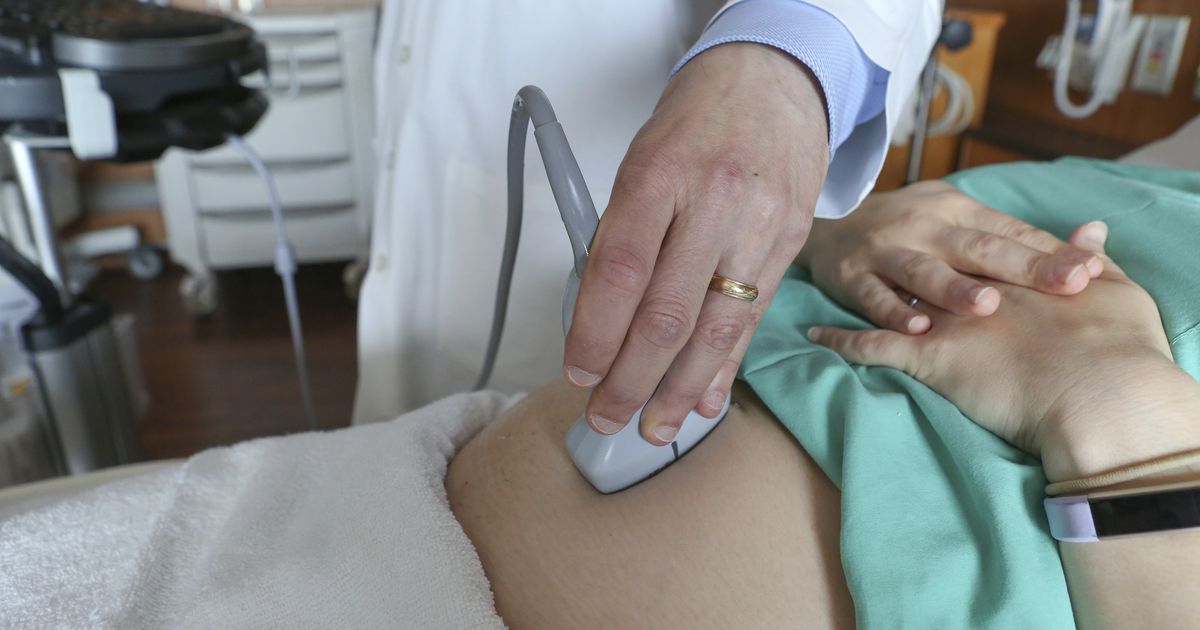
The maternal mortality rate is rising in the United States now at 32.9 deaths per 100,000 live births. Utah is not immune to the rise in maternal mortality rates with a rate of 21.5 deaths per 100,000, meaning that 315 women in Utah alone die from maternal-related deaths per year. With the rising mortality rates, we need to move our support to maternity care.
Important factors to consider include that more women are waiting to have children till older ages, women are more likely than before to go into pregnancy with a pre-existing condition and, like the rest of the U.S. population, hypertension — or high blood sugar — is also rising in pregnant women. All these factors contribute to rising maternal-mortality rates.
The women most at risk of maternal-related death are low-income women and Black women. Black women are three times more likely to die from maternal-related death no matter their income level.
Knowing all these factors, one would think that health care providers would be conscientious of monitoring and taking more care towards their pregnant patients. However, we find that one in five women report receiving mistreatment in maternity care.
Mistreatment is shown in a variety of ways:
Medically
Every year, 7 of every 1,000 babies have birth injuries and in many cases are avoidable. Additionally, the average age of women having their first child is 27.3 years, and coincidentally, women between the ages of 25 and 34 are the most at risk for birth injuries caused by assistive delivery tools in the hands of doctors. On top of this, 25% of women who experienced induction of labor or a cesarean section reported being pressured by their care provider. Reasons for this include physicians’ fears of being sued and doing a C-section is less risky for the doctor. It’s clear that health providers commonly disregard the needs of the patient to achieve their own agendas.
Psychologically
Many women report not feeling believed by their doctor when they report pain symptoms. They often feel they are not being listened to and their knowledge is not as important as the clinician’s assessment. This is dangerous when considering race/ethnicity and the discrimination that women experience not getting equal, fair or just treatment by their doctors. For women who are low-income and on welfare programs such as Medicaid, they also are more at risk of receiving mistreatment due to workers’ biases. The most common types of mistreatment pregnant women experience are receiving no response to requests for help, being shouted at or scolded, not having their physical privacy protected and being threatened with withholding treatment or made to accept unwanted treatment.
Failure to treat
Over 50% of maternal deaths occur after birth, with 20% occurring within just a week. According to the CDC, the providers played the most significant roles in these cases. One other important topic to talk about in the after care of mothers is postpartum depression. Healthcare workers have a special role in follow ups to screen for potential postpartum depression symptoms, however, they are not equipped with skills to help the patient causing them to avoid screening, and with a shortage of mental health care providers in the country, referrals may be scarce resources for many maternal care providers.
There needs to be change in health care and its treatment of pregnant women. Not only is modern medicine based mainly on the knowledge and research of the male body, but training and education on pregnancy are far behind where they should be. Doctors and nurses should not only get more training on maternal emergencies and after-care practices, but also implicit bias training to combat the disparity of Black women’s maternal mortality rate.
Women often fear advocating on their own behalf, feeling as though they do not know as much as their doctors, and will sound dramatic, or bossy. Having patient advocates in maternity care would not only help the power-differential that patients experience with their doctors, help them have a better childbirth experience, potentially lower maternal death rates and provide support in combating postpartum depression, it can also assist the health providers themselves.
We often forget that the key factor in creating resilient new generations is that we must first uplift the parents and caregivers. When a mother is supported in pregnancy, childbirth and after-birth, this can create substantial positive factors in the family environment for the child to grow up in.
Mothers should only need to worry about taking care of their body and baby, they should never have to worry about being mistreated by their medical providers, and neither should any other patient. Let’s work to invest in access to quality care for mothers in America.
Aryanna Sanger
Aryanna Sanger, is a graduate student studying social work at the University of Utah and has a bachelor’s degree in counseling psychology.




